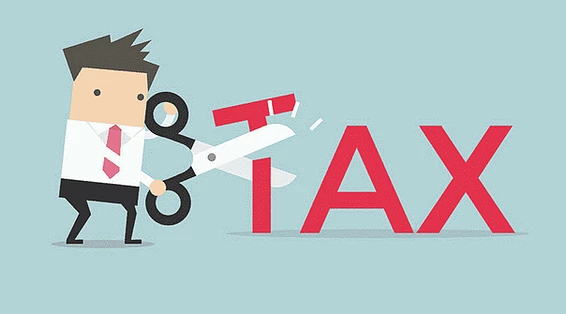Team SAS appreciate that the current economic conditions surrounding the COVID-19 outbreak are exceptionally worrying for business owners. It is our priority to support all of our clients through this period of disruption and to continue our relationship long into the future.
The government have already taken hugely positive steps to ensure business continuity and we are confident that we will continue to see new support measures being introduced in the coming days and weeks. Our team will be on hand to interpret any new information released, translating it to help you understand how it will benefit you and your business.
We’ve put together a summary of the key support currently on offer to both businesses and individuals, to help you successfully navigate through these uncertain times. We will endeavour to update this page as soon as new information becomes available, so please check back on a regular basis.
Coronavirus Job Retention Scheme
What is it?
Under the Coronavirus Job Retention Scheme, all eligible UK employers can access support to continue paying part of their employees’ salary, for those employees that would otherwise have been laid off during this crisis.
HMRC will reimburse 80% of furloughed workers wage costs, up to a cap of £2,500 per month, plus the associated Employer National Insurance contributions and minimum automatic enrolment employer pension contributions on that wage.
The employer can choose to top up the additional 20%, but this is optional. It is very important that employers clearly communicate their intentions and obtain written agreement from employees throughout this process.
This can be backdated to the 1 March 2020 for those businesses affected as early as that, and the scheme is open until 31 October 2020. The scheme also covers employees who were made redundant since 28 February 2020, if they are rehired by their employer.
Employers must have created and started a PAYE payroll scheme on or before 19 March 2020 and have a UK bank account. The scheme will apply to all workers that were on a RTI submission as at the 19 March 2020.
To be eligible for the subsidy, when on furlough, an employee can not undertake work for or on behalf of the organisation. This includes providing services or generating revenue. If an employee is working, but on reduced hours, or for reduced pay, they will not be eligible for this scheme.
It is possible for limited company directors to be furloughed. HMRC recognise that directors need to carry out particular duties to fulfil the statutory obligations they owe to their company and they may continue do so, provided they do no more than would reasonably be judged necessary for that purpose.
Update:
It is important to note that the Job Retention Scheme will be closed to new entrants after the 10 June 2020. This means those not previously on furlough, or individuals being re-furloughed after a period of working, must have been placed within the scheme by this date.
From 1 July 2020, businesses will be given the flexibility to bring furloughed employees back part time. Businesses will be responsible for paying staff wages whilst at work and the government will continue to contribute to staff wages for any time where the employee is not at work.
The scheme updates mean that the following will now apply for the period people are furloughed:
-
June and July: The government will pay 80% of wages up to a cap of £2,500 as well as employer National Insurance (ER NICS) and pension contributions. Employers are not required to pay anything.
-
August: The government will pay 80% of wages up to a cap of £2,500. Employers will pay ER NICs and pension contributions – for the average claim, this represents 5% of the gross employment costs the employer would have incurred had the employee not been furloughed.
-
September: The government will pay 70% of wages up to a cap of £2,187.50. Employers will pay ER NICs and pension contributions and 10% of wages to make up 80% total up to a cap of £2,500. For the average claim, this represents 14% of the gross employment costs the employer would have incurred had the employee not been furloughed.
-
October: The government will pay 60% of wages up to a cap of £1,875. Employers will pay ER NICs and pension contributions and 20% of wages to make up 80% total up to a cap of £2,500. For the average claim, this represents 23% of the gross employment costs the employer would have incurred had the employee not been furloughed.
How do I access it?
HMRC have set up an online portal system that will act as the mechanism for making reimbursements to employers. The portal system went live to employers on the 20th April.
We strongly recommend using the HMRC calculator prior to making a submission, to ensure that the amounts submitted are correct and to avoid any possible delays due to errors on submission.
Should any businesses require template letters to provide to staff then these will be shared upon request from your normal contact at SAS. Please note that we will take no responsibility for the wording used in the letters and we would advise anyone to seek the advice of a HR & Employment law specialist before issuing to their staff.
Coronavirus Self-employment Income Support Scheme
What is it?
This scheme allows you to claim a taxable grant worth 80% of your trading profits up to a maximum of £2,500 per month for the next 3 months.
You can apply if you’re a self-employed individual or a member of a partnership and you:
-
have submitted your Income Tax Self Assessment tax return for the tax year 2018-19
-
traded in the tax year 2019-20
-
are trading when you apply, or would be except for COVID-19
-
intend to continue to trade in the tax year 2020-21
-
have lost trading/partnership trading profits due to COVID-19
Your self-employed trading profits must also be less than £50,000 and more than half of your income come from self-employment. If your 2018-19 profits exceed this amount, then you could still qualify based on the average of the 3 tax years from 2016-17 up until 2018-19.
HMRC will use data on 2018-19 returns already submitted to identify those eligible and will risk assess any late returns filed before the 23 April 2020 deadline in the usual way.
To work out the amount of the grant you will receive, HMRC will add together the total trading profit for the last 3 tax years (where applicable) then divide by 3 (where applicable), and use this to calculate a monthly amount. HMRC have provided an online tool to calculate the amount of the grant available.
How do I access it?
The online service went live on 13 May 2020 and you can now make a claim if you’re eligible.
If your claim is approved you’ll receive your payment within 6 working days.
Coronavirus Business Interruption Loan Scheme
What is it?
A new temporary Coronavirus Business Interruption Loan Scheme to be delivered by the British Business Bank, with the intention to support small and medium-sized businesses to access bank lending and overdrafts. All businesses with turnover below £45m per annum can apply.
The government will provide lenders with a guarantee of 80% on each loan (subject to a per-lender cap on claims) to give lenders further confidence in continuing to provide finance to SMEs. The government will not charge businesses or banks for this guarantee, and the Scheme will support loans from £25,001 up to £5 million in value.
Businesses can access the first 12 months of that finance interest free, as the government will cover the first 12 months of interest payments. Some lenders have also indicated that they will not charge arrangement fees or early repayment charges to SMEs borrowing under the scheme.
The bank cannot lend more than 25% of 2019 turnover or double the annual wage bill, whichever is greater.
It is important to realise that this is still a loan that will need to be repaid. The government have indicated that no personal guarantees or charges over personal assets will be required on loans up to £250k. Above this level, these will be at the discretion of the individual lender.
The scheme became active on the 23rd March 2020 and demand is going to be very high. For any businesses looking to obtain a loan, we would recommend starting the process as soon as possible.
How do I access it?
The full rules of the Scheme and the list of accredited lenders is available on the British Business Bank website. There are over 40 accredited providers in all, however some have temporarily dropped out due to being unable to cope with the levels of demand.
You should talk to your bank or finance provider (not the British Business Bank) as soon as possible and discuss your business plan with them. If you require any support or guidance throughout this process, then do not hesitate to get in touch with a member of our team.
Bounce Back Loans
What is it?
Small businesses can benefit from a new fast-track finance scheme providing loans with a 100% government-backed guarantee for lenders. The scheme has been designed to ensure that small firms who need vital cash injections to keep operating can get finance in a matter of days.
The key points are as follows:
-
Loans ranging from £2k to £50k
-
Available from the 4th May
-
Cash received within days
-
Backed by 100% government guarantees
-
Interest free for 12 months and interest capped at 2.5% thereafter
-
No repayments in year one
-
Terms of up to 6 years
-
Applicant must not be an ‘undertaking in difficulty’ on 31 December 2019
-
Not available to businesses already utilising CBILS
How do I access it?
The loans are easy to apply for through a short, standardised online application. The loan should reach businesses within days, providing immediate support to those that need it as easily as possible
At present the list of accredited lenders is fairly short, however it is expected that numerous others will be added in the coming days/weeks.
If you do not bank with any of the accredited lenders, then HSBC are currently offering Bounce Back Loans to non-customers.
VAT and Income Tax Deferral Payments
What is it?
HMRC are supporting businesses by deferring VAT payments and Income Tax payments under the self-assessment system. No penalties or interest for late payment will be charged in the deferral period.
VAT liabilities falling due within the next quarter do not need to be paid until the end of the next tax year, which is the 31st March 2021. As it stands, any future VAT liabilities beyond this deferral period will need to be paid on time. You must still submit any VAT returns to HMRC before the usual deadline.
Income tax payments that would normally be due on the 31st July 2020 are being deferred to the 31st January 2021.
How do I access it?
This is an automatic offer with no applications required.
If you have a direct debit set up, then HMRC have confirmed that this will need to be cancelled through your online Government Gateway portal or with your bank.
HMRC Time to Pay Service
What is it?
HMRC have scaled up their Time to Pay offer to all firms and individuals who are in temporary financial distress as a result of Covid-19 and have outstanding tax liabilities.
Our team have been in constant communication with the dedicated helpline and can report that HMRC are accommodating all reasonable requests.
How do I access it?
If you have missed a tax payment or you might miss your next payment due to COVID-19, please call HMRC’s dedicated helpline on 0800 0159 559. Alternatively, speak to a member of our team and we can make the call on your behalf.
Business Rates Grant
What is it?
The government will provide additional Small Business Grant Scheme funding for local authorities to support small businesses that already pay little or no business rates because of small business rate relief (SBBR), rural rate relief (RRR) and tapered relief.
This will provide a one-off grant of £10,000 to eligible businesses to help meet their ongoing business costs.
It is the intention of the government that these grants will be made available for the tenant and not the landlord, where the latter is in receipt of the rates bill for the property. We are anticipating further guidance in relation to how this will work in practice.
Financial, medical and professional services will not qualify for this relief (e.g. banks, building societies, employment agencies, vets, dentists, doctors, osteopaths, chiropractors, solicitors, accountants, insurance agents and financial advisers).
How do I access it?
Most businesses will not need to do anything. Your local authority will write to you if you are eligible for this grant.
Many local authorities have now issued guidance on the scheme and have started contacting eligible businesses to notify them how to apply. If you would like to know who your local council is, then follow this link.
Business Rates Holiday for Retail, Hospitality and Leisure Businesses
What is it?
A business rates holiday will be introduced for retail, hospitality and leisure businesses in England for the 2020 to 2021 tax year.
Properties that will benefit from the relief will be those that are wholly or mainly being used as:
-
Shops, restaurants, cafes, drinking establishments, cinemas and live music venues
-
Assembly and leisure
-
Hotels, guest & boarding premises and self-catering accommodation
How do I access it?
You do not need to do anything. This will apply to your next council tax bill in April 2020. However, local authorities may have to reissue your bill automatically to exclude the business rate charge.
Whilst you are waiting for more information, it could be a good idea to cancel your business rates direct debit until further notice.
Cash Grants for Retail, Hospitality and Leisure Businesses
What is it?
The Retail and Hospitality Grant Scheme provides businesses in the retail, hospitality and leisure sectors with a cash grant of up to £25,000 per property.
For businesses in these sectors with a rateable value of under £15,000, they will receive a grant of £10,000. For businesses in these sectors with a rateable value of between £15,001 and £51,000, they will receive a grant of £25,000.
Properties that will benefit from the relief will be those that are wholly or mainly being used as:
-
Shops, restaurants, cafes, drinking establishments, cinemas and live music venues
-
Assembly and leisure
-
Hotels, guest & boarding premises and self-catering accommodation
How do I access it?
You do not need to do anything. Your local authority will write to you if you are eligible for this grant.
Whilst you are waiting for more information, it could be a good idea to cancel your business rates direct debit until further notice.
Statutory Sick Pay for COVID-19 Related Absence
What is it?
Small-and medium-sized businesses and employers are able to reclaim Statutory Sick Pay (SSP) paid for sickness absence due to COVID-19. This refund will cover up to 2 weeks’ SSP per eligible employee who has been off work because of COVID-19.
Employers should maintain records of staff absences and payments of SSP, but employees will not need to provide a GP fit note.
Employers with fewer than 250 employees will be eligible, with the size of an employer being determined by the number of people employed as of 28 February 2020.
How do I access it?
A rebate scheme is being developed. Further details will be provided in due course once the legalisation has passed.
Mortgage Payment Holidays
What is it?
Homeowners and landlords who are up to date on their mortgage payments, can apply for a three-month mortgage payment holiday. This payment holiday should not impact on your credit score, but ultimately that responsibility lies with your individual lender.
Payment holidays are available to any homeowners who are concerned about their ability to meet their mortgage repayments, for example due to a loss of work or other changes in their circumstances. The scheme is also available to buy to let landlords whose tenants have been financially affected by the coronavirus.
You’ll still owe the bank the same capital amount as you do now, but interest will continue to accrue on this. This means it will take you longer and cost you a little more to clear your mortgage.
How do I access it?
To get a payment holiday or discuss your options, you need to contact your bank directly on their customer service phone number.
Universal Credit
What is it?
Universal credit is payment, made monthly in England to help with your living costs. It replaced a number of other benefits available previously, including child tax credit, housing benefit, income support and Jobseeker’s Allowance (JSA). It is typically available for over 18’s but eligibility is restricted to those below the state pension age and those with savings below £16,000.
The amount that you receive is based on a number of factors, including age, whether you are single or in a couple and if you have children. Also taken in to consideration are whether you have any health conditions or disabilities and what levels of capital and income you have.
How do I access it?
You need to apply online for Universal Credit on the gov.uk website. Your claim will then be assessed and a telephone interview then arranged to discuss the claim and the process further. A Universal Credit helpline is available on 0800 3285644 but please be aware that there have been reports of very long queues to get through.
It usually takes about 5 weeks to get your first payment if your claim is successful, although you can request a payment in advance but this would need to be repaid.
Other Practical Steps
Loan Repayments – for businesses with existing borrowings, we would recommend contacting your lender to agree a repayment holiday. Many clients have managed to successfully obtain deferrals on existing agreements such as term loans, HP agreements and property loans.
Temporary Facility Increases – for businesses that already have a finance facility, it is likely to be much quicker and easier to work with your existing lender. If you have invoice finance then you could suggest a short term loan facility or an increase in your advance rate. We have clients that have obtained 100% advance rates over short periods of time, which could avoid the need to access the CBILS.
Business Rates – we have seen local councils take a very accommodating approach with regards to rates, so we would suggest getting in touch to negotiate a payment holiday. Due to high call numbers it may be difficult to make contact before the 1st of the month, so as a temporary measure you may wish to cancel your rates DD until an agreement has been reached.
Supplier Management – where businesses have strong relationships with suppliers, we would recommend picking up the phone and negotiating time to pay arrangements where possible. It is important to realise that some businesses will be better capitalised than others, so it is likely support will be offered in some instances.
Rent – for many businesses, rent will be one of the largest outgoings. We would suggest reaching out to your landlord to understand what help could be on offer. We have seen clients obtaining rent holidays, deferring payments and even receiving deposit monies whilst still in rental contracts.
If you would like to discuss anything further, then our team are available as normal on 0333 202 6441.





